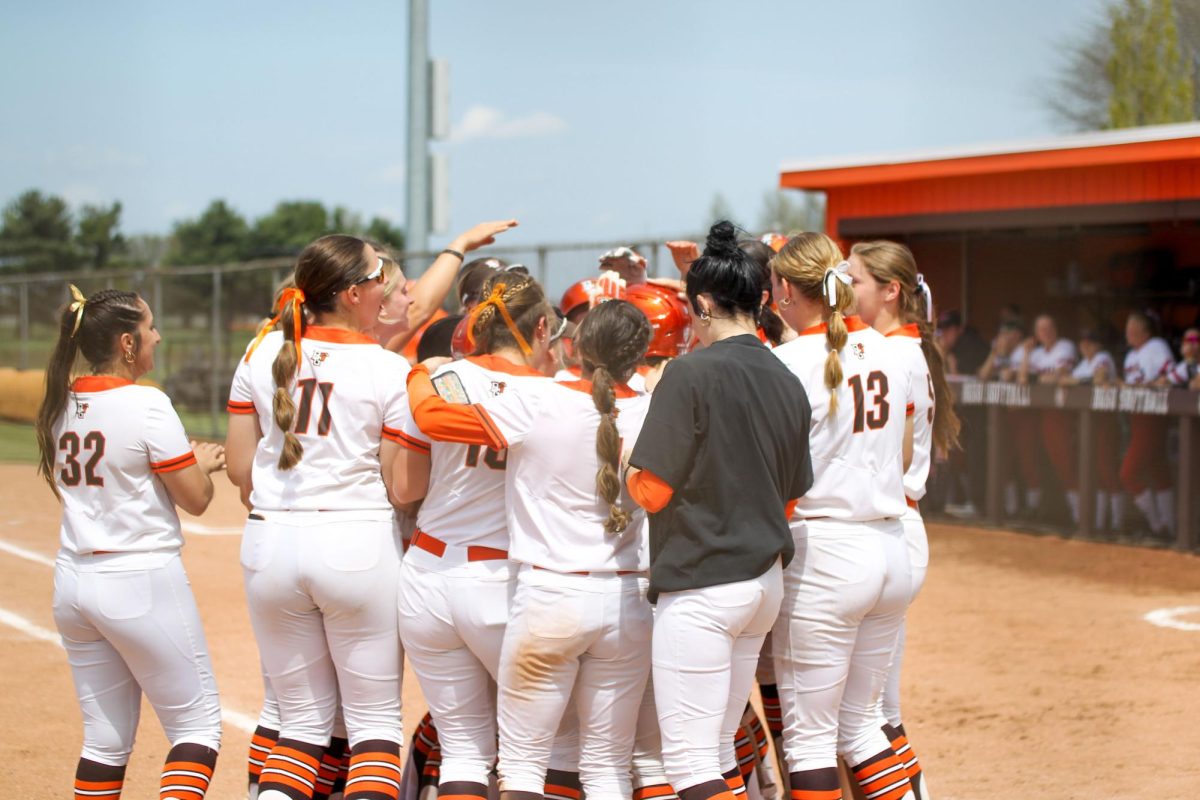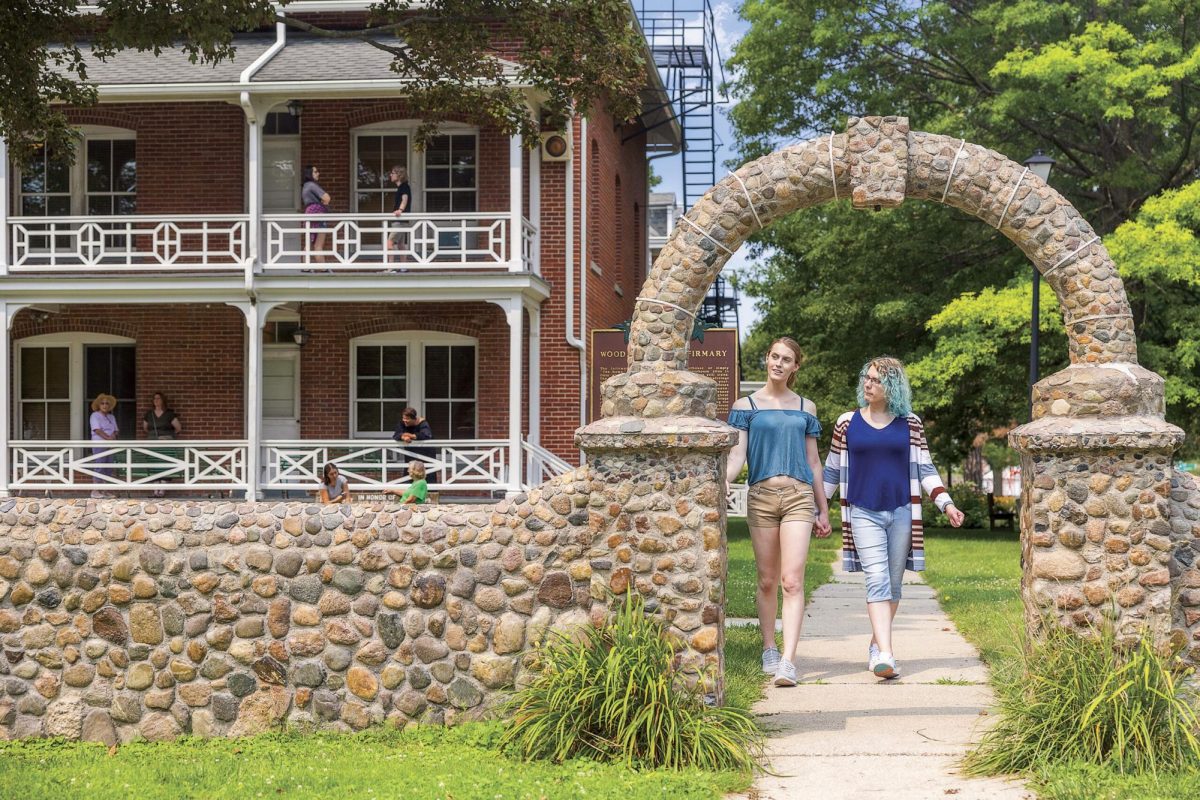More than 380 students, faculty and community members have signed a petition demanding the Ethnic Studies Department retain Carlos Adams, an instructor whose contract expires this year and who was not one of the six instructors the department hired from a search this past semester.
“We … would like to express our dismay at this decision and demand a full investigation into this miscarriage of justice,” the petition says.
The petition has been sent to several University faculty and administrators, including Timothy Messer-Kruse, the Ethnic Studies department chair, President Sidney Ribeau, deans in the College of Arts and Sciences and the Board of Trustees.
The number of signatures steadily grows as former students, many of whom left campus for summer, hear of the situation.
It has sparked an unusually strong outpouring of support and praise for Adams as a teacher, mentor and friend to students, as well as a powerful force in social justice movements around the community.
“Dr. Adams’ presence is an enhancement the diversity of the BGSU community. And to not retain Dr. Adams as an instructor at this University would be a great disservice,” wrote one student, Ankhasenpaaten A-Alkebu-Lan, on the petition.
Said another, Andrew Ladwig: “Through his teachings and wisdom I’ve opened my eyes to a new world around me and hope that many students beyond me can begin to understand their own lives and the world around them under the guidance of one of BG’s finest instructors and activists.”
In an interview, Richard Segovia, a sophomore who had Adams as a professor, said the experience was life-changing.
“You go into his class and you can really tell he cares about what he’s talking about,” Segovia said. “You can tell he cares about each and every student that’s there in the classroom.”
“He’s been like a brother and like a best friend, and at the same time he’s been a mentor,” he said.
Several students praised Adams’ attendance at events held by on-campus organizations.
He had previously served as adviser to Latino Student Union.
He was “present and passionately engaged, and in my opinion that is a campus treasure,” said Joelle Ruby Ryan, an American Culture Studies graduate student who was one of the petition’s creators.
While supporters acknowledge that the new instructors haven’t yet had a chance to prove themselves to students, they also said Adams had a bond with students that will be lost no matter how strong the new instructors are.
“I don’t doubt that there’s a whole bunch of great candidates … however, it doesn’t have anything to do with him being let go,” Segovia said.
Adams, for his part, said the community’s response has been “humbling.”
“To hear these testimonials – whatever happens here, they can’t take that away from me,” he said.
According to Messer-Kruse, all seven Ethnic Studies instructors’ contracts, which were one-year contracts called fixed contracts, expire this year. In a hiring process that ended in late April, the College of Arts and Sciences allowed the department to hire six instructors using fixed contracts lasting two to three years.
The department received 14 applications, including those sent by all seven instructors.
Four of the six hired instructors are returning from last year: Ramona Coleman Bell, Mariam Deme, Patrick Hill and Jamie Stuart.
The others are Zebulon Deare and Christina Gerken. No further information was available on either at press time.
“There was no process for rehiring,” Messer-Kruse said. Doing so would have discriminated against applicants from outside BGSU, he said.
The Ethnic Studies’ advertisement seeking the instructors said “preferred qualifications” included “part-time faculty who are or have taught entry-level courses” in the department, prior experience teaching introductory cultural diversity courses and a “demonstrated record of teaching effectiveness.”
The deliberations of the three-member hiring committee were confidential, Messer-Kruse said, but their conclusions about each selected candidate were described “in great detail” in a letter sent to the college.
“Good teaching is a very broad category,” Messer-Kruse said. “I hope that they would trust that the faculty … can properly judge” a candidate’s qualifications, he said.
The committee also based their decision on “service to the department,” such as internal administration matters, which depend more heavily on instructors than in larger departments, he said.
Adams said he was trying to obtain a copy of the committee’s letter and argued that instructors’ input to the department “became less and less” during his time there.
Supporters, and Adams, also worry the decision reflects an ongoing stagnation and lack of effort at the University to hire more minority faculty. They have further concerns about whether there will be enough professors to teach courses for the Latino/a Studies minor.
Messer-Kruse said there would be two Hispanic American faculty members for the 2007-08 school year, not counting the newly hired instructors, but also said “there has been no reduction overall of people of color on our staff … as a result of these hirings.” Course offerings would not decrease, he said.
“The decisions made this past year … were made entirely on the needs of the department,” he said.
The two Hispanic Ethnic Studies professors are Rolando Andrade and Susana Peña.
Regarding being able to accomdate classes, Andrade said was “not worried about it at all.” Peña declined to comment.
BGSU had 29 full-time faculty members classified as Hispanic American as of January, according to the Office of Institutional Research – 3.2 percent of all full-time faculty.
That percentage is higher than many area state universities, although available data for some schools is outdated.
But Adams still criticized what he said was a “revolving door” of hiring.
“The University needs to take a step back and take an honest look at what it’s doing with its racial diversity on campus,” he said. “For the most part we’re not adding faculty of color, we’re replacing the faculty of color that has left.”
As for the petition, Linda Dobb, University executive vice president and secretary to the Board of Trustees, said she had received a letter with the petition from Errol Lam, a faculty emeritus and one of the petition’s creators.
She said she forwarded the material to the board’s chair, but it would be “quite a long time” before any response was known.
“Our trustees normally wouldn’t be involved, in general, with [personnel] actions of this type,” she said.
Ribeau did not return messages left with his office’s staff by press time.

















